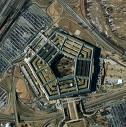New Scandals Rock US Nuclear Command

The Pentagon has been forced to pull nearly one out of every five of the US Air Force’s nuclear launch officers from their posts, as a result of spiraling drugs and cheating scandals.
The Associated Press reported Wednesday that the number of officers implicated had more than doubled since the scandal first became known earlier this month, with 92 airmen—all of them assigned to Malmstrom Air Force Base in Montana—now facing charges of being either directly or indirectly involved in cheating on proficiency tests.
The report came the same day that US Defense Secretary Chuck Hagel convened a top level meeting at the Pentagon of the country’s nuclear commanders to review the growing signs of serious morale and discipline problems in a force entrusted with weapons that could wipe out humanity.
The base is responsible for 150 nuclear-armed Minutemen 3 missiles, one third of the country’s entire Minuteman 3 force. The test in question is designed to assess officers’ proficiency in carrying out emergency war orders issued from the US president to launch the missiles as part of a nuclear war. This horrific task is supposed to take under two minutes.
Each of the Minuteman 3 missiles carries a payload with 27 times the destructive power of the nuclear bomb dropped on Hiroshima in 1945. They are capable of leveling and vaporizing everything within 50 miles of their target, while the blast, heat and radiation would kill everything for hundreds of miles.
The cheating scandal came to light as the result of an investigation into illegal drug use by 11 Air Force officers, including two launch officers at Malmstrom. The revelation that the two officers had been stripped of their security clearances and temporarily suspended came on January 9, just as Chuck Hagel was set to make the first visit by a US secretary of defense in six years to one of the nuclear missile facilities.
Speaking to the nuclear missile crews at F.E. Warren Air Force Base in Wyoming, he praised them for “doing something for the greater good of the world,” while stressing that they had “chosen a profession where there is no room for error,” an implicit reference to the danger of an accidental launch.
The visit appeared to be aimed at boosting morale for a force putting in 24-hour shifts in underground bunkers, where “burnout” has been widely reported. Moreover, the missile commands’ top commander had been sacked recently over alleged “behavioral incidents.”
Last month the Air Force released an official report charging that the commander, Maj. Gen. Michael Carey, appeared to be on a drunken binge through much of a US-Russian nuclear security exercise in Moscow. It cited testimony of other officers that he had consorted with two “somewhat suspect” women at a bar, where he also repeatedly demanded to be allowed to play with the band. The report also said he offended his Russian hosts with remarks about Syria and Edward Snowden.
The sacking of Carey came shortly after another firing of a top level nuclear force commander. Vice Admiral James Giardina, who was second in command of the US Strategic Command, was relieved of his command on charges that he had tried to gamble at a casino with $1,500 worth of fake chips.
“We’re confident in the security of the nuclear arsenal of this country,” Pentagon press secretary Rear Adm. John Kirby told reporters last week. “That said, clearly we’ve got some issues.”
The crisis in the US nuclear war command, particularly ominous because of its potentially world catastrophic implications, is only one indication of mounting tensions and morale problems within the US military as it carries out what the Pentagon refers to as the “rebalancing” of America’s armed forces in the wake of over a decade of war in Iraq and Afghanistan.
The Washington Post published a pair of articles documenting an unprecedented series of military investigations of personal misconduct and abuse of subordinates by dozens of generals and admirals over the past 15 months. The newspaper, which obtained reports on the investigations under the Freedom of Information Act, warned that the incidents had “tarnished the reputation of US military leadership.”
Tensions have also been growing between the military brass and the Obama administration over issues that include the drawdown of forces from Iraq and Afghanistan, the so-called “pivot to Asia,” and claims that the Pentagon budget fails to provide enough resources to modernize the military for a potential confrontation with China.
“Technological superiority is not assured,” the Pentagon’s undersecretary for acquisition, technology and logistics, Frank Kendall told a congressional panel this week. “This is not a future problem; it is a here and now problem.”
Meanwhile, an indication of political moods within the military brass was provided last week by Admiral Michael Mullen, the former chairman of the Joint Chiefs of Staff, who addressed a meeting in Washington called by the neo-conservative magazine, the Weekly Standard and a right-wing veterans’ association.
“I worry that America has paid us very well, the compensation’s good, [so it says] ‘please go off and fight our dirty little wars and let us get on with our lives,’” said the former chief military commander, who has since joined the boards of directors of General Motors and Sprint-Nextel.
Pointing to the increasing divide between an all-volunteer military and the rest of society, Mullen added, “The people in the Northeast don’t know us anymore.” He proposed the imposition of two years of universal national service, while claiming it would not be a draft.
“The military becoming more and more isolated from the American people is a disaster for America,” he warned.
Indeed, the immense and growing power of the US military and intelligence complex, the emergence of a professional military caste and its increasing independence from civilian control poses tremendous dangers to basic democratic rights.

